Practical information for visitors of Amsterdam
When you’re going on a journey it’s useful to know some general information about the country or city you’re going to so you can plan your visit better. So on this page you can find practical information, tips and tourist information for visitors of Amsterdam. Which currency they use in Amsterdam, what the opening hours of the stores are in Amsterdam and what the weather is like in Amsterdam.
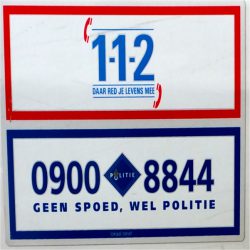
Police, fire brigade and ambulance in the Netherlands
Phone numbers starting with 0800, 0900, 088 and 112 could be called without an area code. The country code for The Netherlands is 0031. The area code for Amsterdam is 020.
– The European emergency phone number for police, fire brigade and ambulance: 112
– The phone number for police, non emergency: 0900 8844
– The emergency phone number of the family doctors in Amsterdam (Huisartenpost): 088 003 0600
– The phone number of the Public Health Service in Amsterdam (GGD): 020 555 5911
– The phone number of the Expat Medical Centre (and Tourist doctor services): 020 427 5011
– The phone number of the Dentist Mediation Desk: 0900 821 22 30 or 020 570 9595
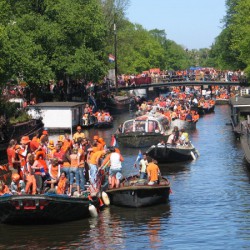
Holidays and festivities in the Netherlands
The Netherlands has a lot of quite unique holiday. On Kingsday for example the birthday of the Dutch King is celebrated. This is done by holding festivities across the country. And holding a nation-wide yard sale. All while wearing their customary orange clothing. The night before Kingsday students tend to go out drinking en mass to prepare for the holiday. As the weather also tends to be quite sunny and pleasant on Kingsday it’s a great day to visit the Netherlands.
The dates of most major holidays and festivities from the Netherlands and their dates are listed below. Some holidays or traditions have a date that varies per year.
| Dutch Public Holidays 2026: | |
| 1 January | New Year’s Day |
| 15 February | Carnaval |
| 3 April | Good Friday (not an official public holiday) |
| 5 April | Easter Sunday |
| 6 April | Easter Monday |
| 27 April | King’s Day (formerly Queen’s Day) |
| 4 May | National Remembrance Day (not an official public holiday) |
| 5 May | Liberation Day (official public holiday every 5 years) |
| 14 May | Ascension Day |
| 24 May | Pentecost Sunday (Whitsunday) |
| 25 May | Pentecost Monday (Whitmonday) |
| 5 December | Sinterklaas (not an official public holiday) |
| 24 December | Christmas Eve |
| 25 December | Christmas Day |
| 26 December | Second day of Christmas |
| 31 December | New Year’s Eve (not an official public holiday) |
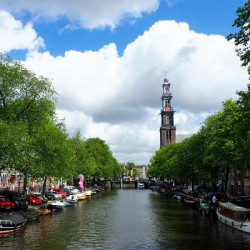
Weather and climate in Amsterdam
The climate of Amsterdam is best described as an oceanic climate, which is due to its location near the North Sea. This leads to the Netherlands having four seasons which are considered quite mild. You usually won’t experience harsh weather in Amsterdam. The summers can be quite warm, but it’s usually still very tolerable. While the winters tend to be quite cool, but it won’t get far below freezing point. During every season you can expect some light rainfall. This makes Amsterdam a city that could be visited throughout the year, although the best time to visit the Netherlands is during the spring or during the summer, which is from March until September.
| Jan | Feb | Mar | Apr | May | Jun | Jul | Aug | Sep | Oct | Nov | Dec | |
| Average high ˚C | 5.8 | 6.3 | 9.6 | 13.5 | 17.4 | 19.7 | 22.0 | 22.1 | 18.8 | 14.5 | 9.7 | 6.4 |
| Average high ˚F | 42.4 | 43.3 | 49.3 | 56.3 | 63.3 | 67.5 | 71.6 | 71.8 | 65.8 | 58.1 | 49.5 | 43.5 |
| Average low ˚C | 0.8 | 0.5 | 2.6 | 4.6 | 8.2 | 10.8 | 12.0 | 11.8 | 10.6 | 7.5 | 4.2 | 1.5 |
| Average low ˚F | 33.4 | 32.9 | 36.7 | 40.3 | 46.8 | 51.4 | 53.6 | 53.2 | 51.1 | 45.5 | 39.6 | 34.7 |
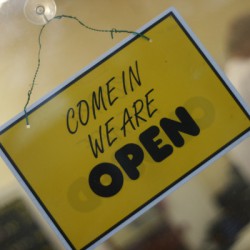
Opening hours in Amsterdam
Shops in Amsterdam are allowed to decide their own opening hours between 06:00 and 22:00 hours. So you will find that large retailers might be open until 22:00 hours, while small businesses might close down at 18:00 for dinner time. On the monday morning shops tend to be closed as trucks filled with new supplies arrive.
Opening hours of shops in Amsterdam are in general:
| Monday | 13:00 – 18:00 |
| Tuesday | 09:00 – 18:00 |
| Wednesday | 09:00 – 18:00 |
| Thursday | 09:00 – 21:00 |
| Friday | 09:00 – 18:00 |
| Saturday | 09:00 – 18:00 |
| Sunday | In the citycenter 12:00 – 17:00. In the rest of the city most shops will be closed. |
Be aware that on public holidays shops, post offices, banks, governmental councils, e.d. could have adjusted opening hours, or could even be closed for the day.
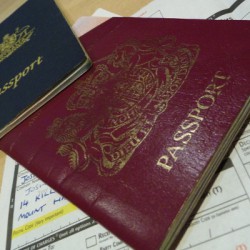
Passport and visa
Persons from an EU/EEA country and Switzerland only need a passport (or identification card) to have legal access to the Netherlands.
Check if your country is on the IND’s list with countries that require a visa. Here you can find the list of countries whose nationals need a Schengen visa for a stay of up to 90 days in de Netherlands.
If your country is on the list you need to get a Schengen visa, or a Transit visa.
A Schengen visa is required for a short stay for up to 90 days.
A Transit visa is required for changing flights in the Netherlands.
With a Schengen visa you are also allowed to travel to the other Schengen countries. But be aware that you have (copies of) the required documents needed to apply for a Schengen visa with you. It is possible that you need to show these documents at the border(s).
At the Dutch mission (consulate or embassy) in your country you can apply for a visa. If you also travel to other Schengen countries you should apply at the mission from the country where you will stay the longest.
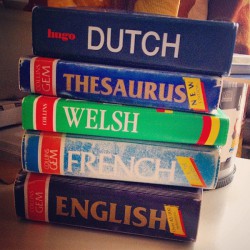
Language spoken in Netherlands
The official language of Amsterdam, and the rest of the Netherlands, is Dutch. Which is a language that’s quite closely related to English and German.
The level of English fluency in the Netherlands varies from being able to answer basic questions to being able to speak fluent English. In general Dutch people are considered one of the best non-native English speakers on the planet, so most people do tend to speak English, at least to some extent. This means getting around should be quite easy for English speaking tourists. Dutch people are usually also quite happy to answer any questions from tourists, as the people are quite friendly and see those questions as an opportunity to finally being able apply their English skills. If you need any assistance its best to just approach a person, as Amsterdam is a very busy city where people are expected to just speak up if they have any questions.
Dutch schools put a large emphasis on learning foreign languages, so most people do speak at least one foreign language. A large portion of the population also speaks a third language besides English, which is usually German or French.
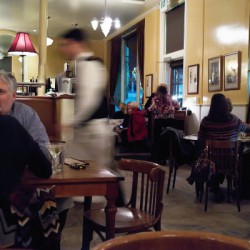
Tipping culture in Amsterdam
In Amsterdam and the rest of the Netherlands waiters do not live off tips. However, it is common use to give a tip of about 5-10% in restaurants. If you have lunch giving a 1,5 to 2 euro tip should really suffice. In bars and cafés it is common for people to just round the price up to the nearest euro. Larger tips are not necessary, but will always be appreciated.
People in the Netherlands also tend to tip taxi drivers by rounding the amount up, although that isn’t a necessity.
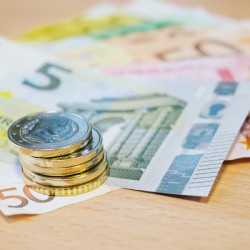
Money and payments
The official currency in Amsterdam and the rest of the Netherlands is the Euro. ATM’s are widely spread in Amsterdam, which makes it easy to get some cash. In the Netherlands most payments are made with debit card, cash or via internet banking.
It’s important to note that payments with credit cards are less common than in some other countries. Credit cards are necessary for hotel bookings or car rentals, but many shops do not accept them.
